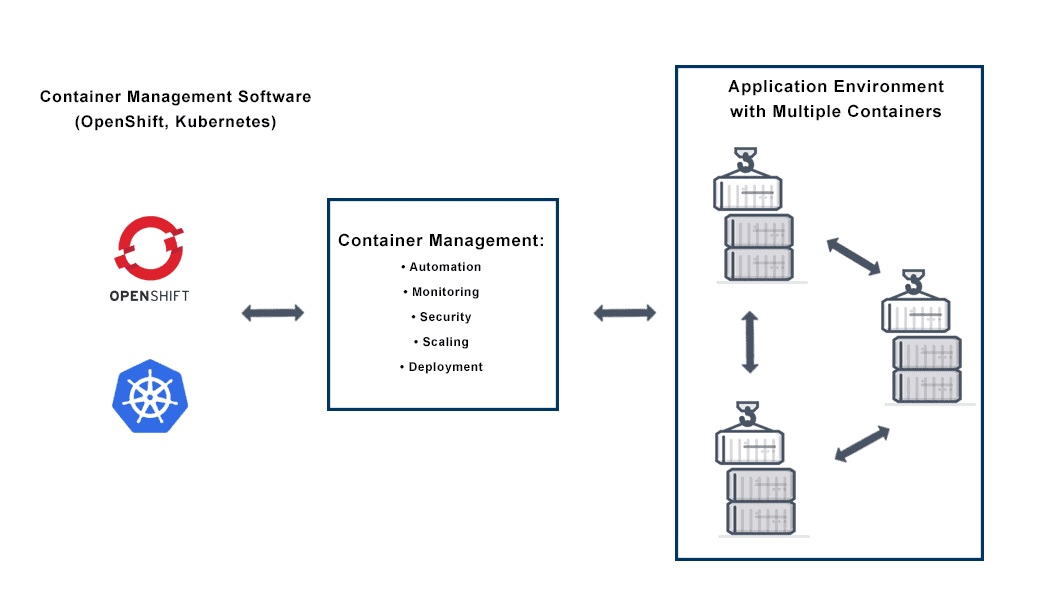Container Management Definition
Container Management is the process of organizing, adding or replacing large numbers of software containers. Container management uses software to automatically create, deploy and scale containers. This gives rise to the need for container orchestration—a more specialized tool that automates the deployment, management, scaling, networking, and availability of container-based applications. For example, Kubernetes manages app health, replication, load balancing, and hardware resource allocation for you.

What is Container Management?
Container management uses a platform to organize software containers, which may also be referred to as operating-system-level virtualizations. The container management platforms optimize efficiency and streamline container delivery without complex interdependent system architectures.
Containers have become popular as enterprises use DevOps for faster development and deployment of applications. Containers include everything needed to run software, including files and libraries. Containers combine the libraries of an application or microservice into one deployable unit that does not deplete the CPU or memory resources of the host operating system. Container management includes scheduling, application security, storage and monitoring.
Why use Container Management?
Container management is necessary when enterprises rely on containers to quickly deploy and update applications. Container management software like Kubernetes and Docker Swarm is designed to handle the rapid changes in DevOps strategy.
Docker container management software and Kubernetes container management make orchestration, security and networking easier. Container management software systems are available as both open source and proprietary commercial products.
Why Do Containers need Management?
Containers need management services because a vast number of containers can become too complex for an IT team to handle.
Container management also provides automation that enables application developers to stay on top of rapid changes. The automatic deployment of container-based applications to operating systems and the public cloud requires management because orchestration platforms like Kubernetes can be complex.
Does VMware NSX Advanced Load Balancer Offer Container Management?
Yes. The VMware NSX Advanced Load Balancer integrates with container-based environments to provide a container ingress, dynamically configured load balancing, service discovery, service proxy, application mapping, and autoscaling capabilities. The solution also provides end-to-end visibility and performance monitoring at the microservice and service-fabric levels, and autoscales application instances across thousands of nodes based on real-time traffic and application performance.
For more on the actual implementation of load balancers, check out our Application Delivery How-To Videos.
For more information on container management see the following resources: